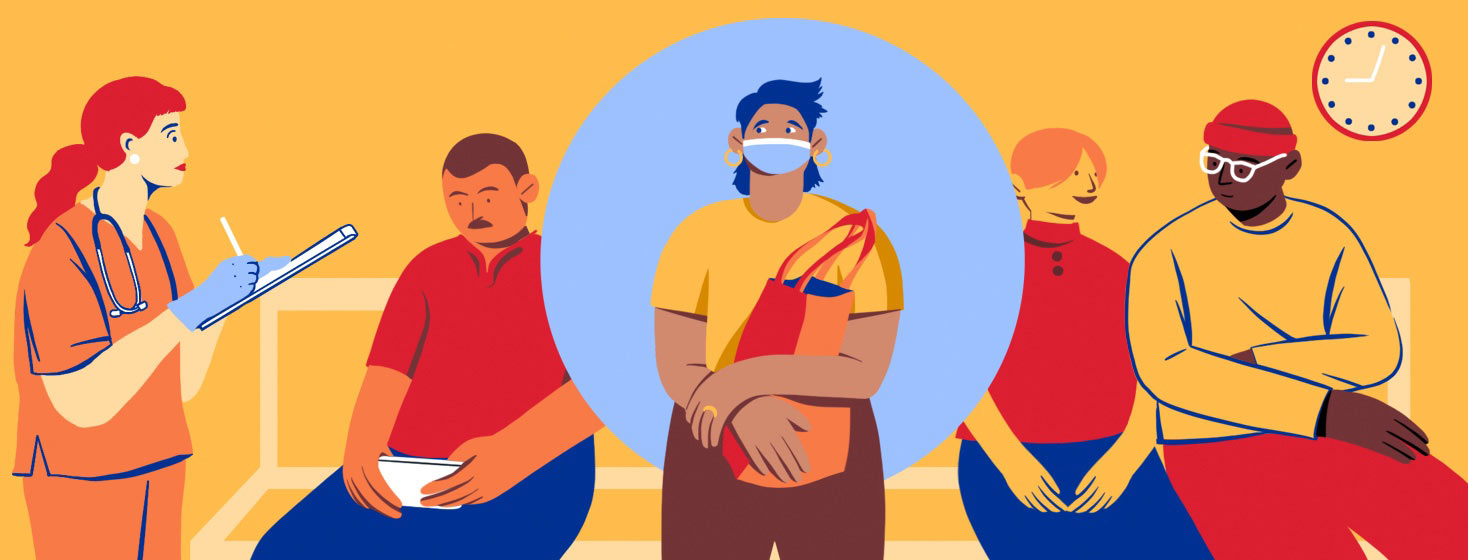Avoiding New Diagnoses and Routine Healthcare
I have a dilemma. I put my focus and energy into staying on top of my myasthenia gravis (MG) healthcare. But then consequently, I lose focus on other aspects of my health that need care and attention. The solution seems simple: equally split focus. But with MG and many other severe health conditions, we can't reduce any appointments, treatment, or finances because then we flare or stop progress.
Every time my bloodwork comes back with some irregularity or change in numbers, my doctor shoots out all these conditions that could be the cause. They ask if I want a recommendation for a specialist, and constantly brings it up appointment after appointment. I get it; it's their job, and they want to avoid being accountable for anything, such as not notifying a patient of something that may need further investigation. But I honestly just shut down at the thought.
In addition, there is always preventative care, more and more as we age. The idea seems lifesaving and a no-brainer, but getting myself concerned enough to attend an appointment is unlikely. The thoughts creep in while I am overwhelmed, "is it worth it?"
Anxiety with offices and appointments
Social anxiety in the waiting room. Dealing with the check-in, nurses, doctors, and check-out. Finding the office in a new building I've never been. These are the perfect storm for an anxiety attack. Plus, there is the risk of exposure to illness since I am immunocompromised, for example, going into small offices where few people ever have their masks on in the waiting rooms. COVID-19 is still floating around, as is the flu, being it's winter time.
Feeling anxious is not the mindset I aspire for when trying to find some answers or care for my health. A lot of times, I have questions to express to the doctor, but if it's one of those appointments when I feel ignored, dismissed, talked down to, or gaslighted by the doctor, it can be challenging to speak up for myself when I am already anxious and overwhelmed.
The amount of time it requires
An ongoing battle exists between wanting symptoms resolved and caring for our bodies to the best of our ability. Yet, we cannot conveniently make the time for more appointments. Even if bloodwork shows a possible concern or medical condition, if I do not have noticeable or bothersome symptoms, it is hard for me to justify and convince myself that it is worth the inconvenience of going to see a specialist and seeking a diagnosis.
Difficulty getting to an appointment
At my worst, as I am sure many of you have gone through, I cannot drive. Before and after my first MG crisis, I could not drive for a while because my double vision was too extreme. And then it was months before I had the strength to drive, especially distance. I had the same problem after my thymectomy.
Pondering how I will get to an appointment, who will I need to ask to drive me, whether I am being an inconvenience to others, or if I need to resort to public transportation gets me all flustered. It makes me frustrated that I am even in the situation where my health is making me go through this.
Financial uncertainty
I doubt many of us feel satisfied with the expenses that come with MG. Deep down, my mind knows healthcare is the most crucial thing in life I could focus on. But the uncertainty of what a new diagnosis could entail financially makes me hesitate if I am ready for what I could hear if I go to that appointment.
Fear and denial
I am an individual who is prone to the "worst situation outcome" mindset. It is something I continue to work on in therapy. However, it is challenging to overcome those thoughts of future apprehension, such as whether I will be able to treat another diagnosis while being on my MG treatment. Plenty of waves of denial take over. Why something else? What did I do to deserve this? How could this affect my family?
Stay present
Are routine exams worth it? Absolutely yes. If it is hard to convince yourself, ask your loved ones their opinion. Their concern about you considering not being preventative might motivate you. Let someone else know about your reluctance so they can hold you accountable and give friendly reminders and encouragement. Also, remember never to hesitate to ask for help from friends or loved ones, such as for childcare, if it will give you the time to go to an appointment.
Sure, healthcare is excellent overall, but the physical appointment is never usually anticipated. But healthcare never ends, so with each appointment, try and find ways to make the experience less stressful. The best thing you can do for yourself is to stop viewing healthcare as a negative experience rather than a positive one. I recommend treating yourself to something you enjoy before or after the appointment to reward yourself, help ease the moment, and not let it disrupt your mentality.

Join the conversation